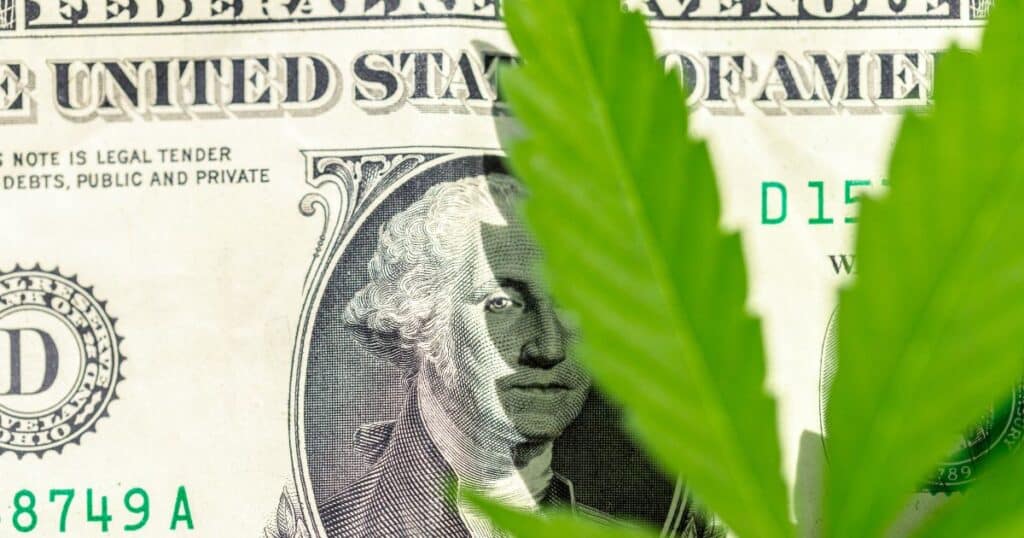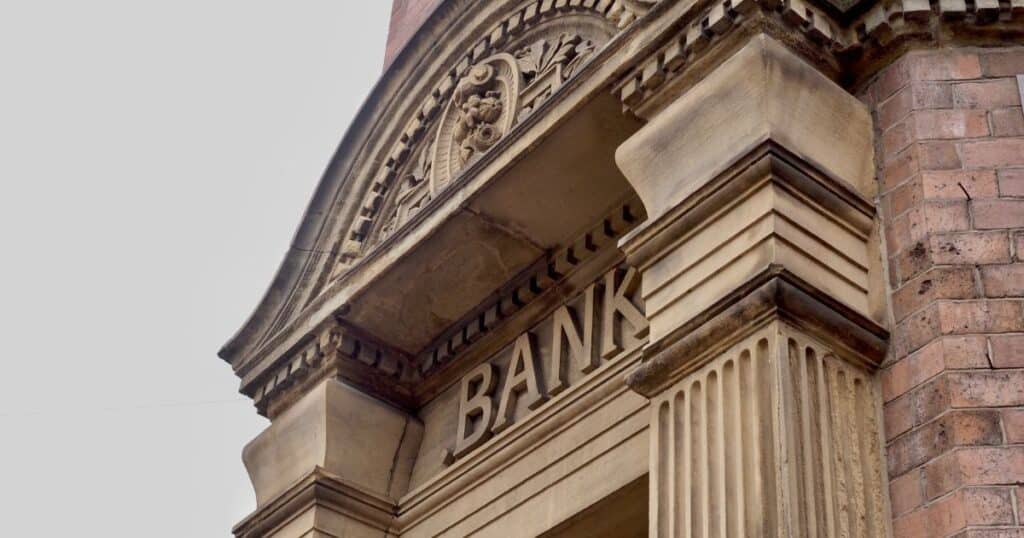The Secure and Fair Enforcement Regulation (SAFER) Banking Act is a newly proposed Federal legislation that seeks to give cannabis businesses access to banking services. The bill was introduced with bi-partisan support, led by Senate Majority Leader Chuck Schumer (D-NY). The SAFER Banking Act is an expanded version of the Secure and Fair Enforcement (SAFE) Banking Act, which has failed to pass multiple times since 2019.
The main purpose of this bill is to ensure that federal banking regulators cannot interfere with banks or financial institutions that provide services to state-legal marijuana businesses.
Currently, many major banks have stayed away due to the federal illegality of cannabis. The SAFER Banking Act seeks to create legal protections for these institutions, allowing them to open bank accounts and offer small business loans without fear of reprisal from federal regulators.
Announcement of the SAFER Banking Act
On Wednesday afternoon, several lawmakers including Senate Majority Leader Chuck Schumer (D-NY) alongside Senators Jeff Merkley (D-OR), Steve Daines (R-MT), Kyrsten Sinema (I-AZ) and Cynthia Lummis (R-WY) released a joint statement announcing the Secure and Fair Enforcement Regulation (SAFER) Banking Act.
In a statement, they said “We are pleased to introduce the Secure and Fair Enforcement Regulation (SAFER) Banking Act. This legislation will help make our communities and small businesses safer by giving legal cannabis businesses access to traditional financial institutions, including bank accounts and small business loans. It also prevents federal bank regulators from ordering a bank or credit union to close an account based on reputational risk. We look forward to the markup of this bill in the Senate Committee on Banking, Housing and Urban Affairs on September 27th.”
BREAKING:
— Chuck Schumer (@SenSchumer) September 20, 2023
We're introducing the Secure and Fair Enforcement Regulation (SAFER) Banking Act.
This will help make our communities and small businesses safer by giving legal cannabis businesses access to traditional financial institutions. pic.twitter.com/7SEiJEu9nV
Schumer also pledged to bring the bill to the Senate floor “with all due speed”. The hearing in the Senate Banking Committee is scheduled for next week on September 27th. With the announcement of this new legislation, new hope has been breathed into Federal cannabis reform just weeks after Biden’s administration recommended that marijuana be rescheduled.
The bill is backed by a number of both Democrat and Republican co-sponsors, Senators Chuck Schumer (D-NY), Jeff Merkley (D-OR), Steve Daines (R-MT), Kyrsten Sinema (I-AZ), Cynthia Lummis (R-WY), Kevin Cramer (R-ND), Cory Booker (D-NJ), Dan Sullivan (R-AK), and Bob Menendez (D-NJ). The text of the legislation can be viewed here, and a section-by-section summary can be viewed here.
Overview of the SAFER Banking Act
The Secure and Fair Enforcement Regulation (SAFER) Banking Act is an expansion of The Secure and Fair Enforcement (SAFE) Banking Act, which was first proposed in 2019. Both bills seek to bring legal protections to banks and financial institutions that provide services to state-legal cannabis businesses.
The SAFER Banking Act, however, goes one step further and also prevents federal banking regulators from ordering a bank or credit union to close an account based on “reputational risk.” This is an important addition, as many major banks have stayed away from servicing cannabis businesses due to the perceived risk of doing so.
Schumer also hopes to include the HOPE Act as well as the GRAM Act. The Harnessing Opportunities by Pursuing Expungement (HOPE) is a bill that seeks to expunge cannabis-related offenses from an individual’s criminal record. While the Gun Rights and Marijuana (GRAM) Act would end the prohibition of gun sales to users of cannabis in states where medical or recreational use is permitted.
Even though the SAFER Bank Act and SAFE Bank Act are similar, Marijuana Moment breaks down most of the key changes here.
- In Section 7, the SAFER Banking Act omits earlier language preventing federal regulators from taking action that “discourages” financial institutions from working with state-legal marijuana businesses.
- However, Section 10 of the bill now spells out how regulators must broadly have a “valid” reason for requesting or requiring the termination of bank accounts for any business.
- It was revised to give the Federal Deposit Insurance Corporation (FDIC) one year, rather than 180 days, to develop guidance for financial institutions serving state-licensed marijuana businesses.
- The original bill said that income derived from state-legal cannabis business activity couldn’t be used to deny “federally backed mortgages.” That’s been revised to say that standard applies to a “covered” mortgage. A new example of such a covered mortgage is one that’s “acquired or purchased by a Federal Home Loan Bank or pledged as collateral for an advance from a Federal Home Loan Bank.”
- Section 10 has been expanded, for example to include a “sense of Congress” language stipulating that the personal and political beliefs of financial regulators should not influence their decisionmaking.
- The legislation would newly require federal banking regulators to work with state banking supervisors and the secretaries of commerce and treasury and, within two years of enactment, form rules or guidance to increase access to deposit accounts for businesses and customers and to enable banks and credit unions to more effectively maintain customer relationships—especially for those in rural, low-and moderate-income areas, Tribal communities and unbanked businesses and consumers.
- There’s a new requirement for the Federal Deposit Insurance Corporation (FDIC) to conduct a biennial survey and report to identify barriers to accessing deposit accounts for small-and medium-sized businesses.
- Further, the bill has been revised to include explicit mention of tribal communities in Section 11, which requires federal regulators to submit a report to Congress on access to banking for historically underbanked communities. Tribes are now listed beside minorities, veterans, women and small state-sanctioned cannabis businesses as subjects of that report—which is not the case in the Secure and Fair Enforcement (SAFE) Banking Act as introduced.
- While required reports on data concerning small and minority-, veteran- and women-owned businesses are still in the bill, the phrase “diversity and inclusion” has been removed from the relevant section titles.
Opposition to SAFE Banking Act
It should be noted that there is opposition to the Safe Banking Act. The belief is that banking can only help the already large cannabis corporations. While that is partially true, those large corporations essentially already have banking by paying slightly higher fees than average, and also allowed because of their high volume of transactions. In reality, there will be some of both, it will help both large and small companies with access to regular banking services and loans.

The Senate Committee is scheduled to vote on the SAFER Banking Act next Wednesday, March 27th. This proposed legislation provides a major step forward in Federal cannabis reform and could grant much needed protections for state-legal cannabis businesses.
Despite this new hope, the passage of the SAFER Banking Act is far from guaranteed; it faces numerous roadblocks before becoming law.
The SAFER Banking Act and other proposed cannabis reform bills have advanced the conversation in Congress, giving those involved in the industry hope for a better future.
Every step forward is important and provides further evidence of how much momentum has been gained by the cannabis movement in recent years.
It will be interesting to see if this bill passes through the Senate Committee next week and makes progress in the legislative process. Cannabis reform is long overdue, and we can only hope that this bill helps to bring us one step closer to its legalization.
Enjoyed that first hit? Come chill with us every week at the Friday Sesh for a freshly packed bowl of the week’s best cannabis news!

















